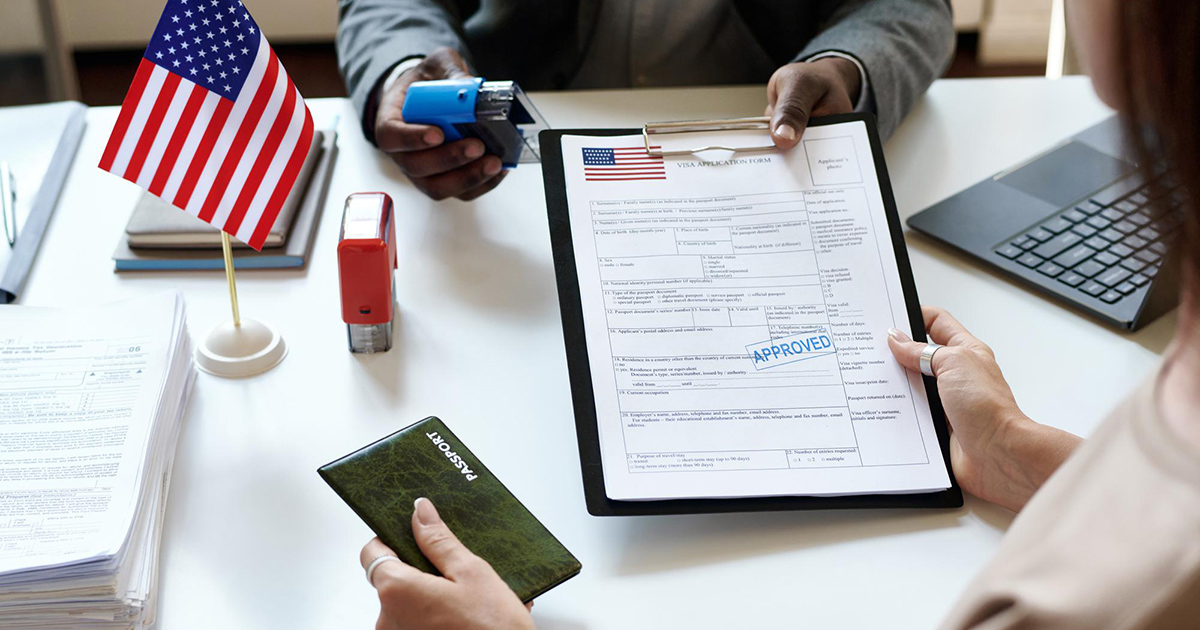Comparing Work Visa Sponsorship: Employer-Sponsored vs. Self-Sponsored Visas
Comparing Work Visa Sponsorship, Navigating the world of work visas can feel like wandering through a maze. With so many options available, making an informed choice is crucial for your career and future opportunities. Among the most common pathways are employer-sponsored visas and self-sponsored visas. Each option has its own set of rules, benefits, and challenges that can significantly impact your journey.
So what’s the difference? How do you know which route suits you best? Whether you’re an international professional aiming to land a job abroad or someone considering starting their own venture in another country, understanding these two types of visa sponsorships will empower you to take control of your situation. Let’s dive deep into comparing work visa sponsorship: employer-sponsored vs. self-sponsored visas!
Understanding Work Visa Sponsorship
Work visa sponsorship is a crucial aspect for individuals seeking employment in foreign countries. It involves a legal agreement where an employer supports a candidate’s application for a work visa, enabling them to live and work legally abroad.
There are two primary types of sponsorship: employer-sponsored and self-sponsored visas. Each caters to different scenarios and needs, making it essential for applicants to understand their options.
Employer-sponsored visas typically hinge on job offers from companies that need specific skills unavailable locally. This route often provides additional security since the employer usually guides candidates through the process.
On the other hand, self-sponsored visas allow individuals to take matters into their own hands. They can pursue opportunities based on personal qualifications rather than relying solely on an employer’s backing. Understanding these differences sets the foundation for making informed decisions regarding your career aspirations abroad.
Differences between Employer-Sponsored and Self-Sponsored Visas
Employer-sponsored visas are tied to a specific job offer from an employer. The company takes on the responsibility of applying for the visa on behalf of the employee. This often includes demonstrating that they have searched for local candidates before offering the position to a foreign worker.
In contrast, self-sponsored visas allow individuals to pursue work opportunities without direct employer involvement. Applicants must showcase their skills, qualifications, or investment potential independently.
While employer-sponsored options can provide more stability and support during the application process, self-sponsored visas grant greater flexibility in choosing where and how one works. Each route caters to different needs and preferences within the complex landscape of immigration options.
Pros and Cons of Employer-Sponsored Visas
Employer-sponsored visas come with distinct advantages. For one, they often provide a clear pathway to permanent residency. Many employers are willing to help their employees transition from temporary work status to a more stable immigration situation.
On the flip side, these visas can tie you closely to your employer. If the company decides to downsize or if you encounter issues at work, your visa status may be jeopardized.
Another benefit is access to resources and support during the application process. Employers typically have experience navigating complex immigration procedures, which can ease stress for you.
However, securing an employer-sponsored visa might limit your job options since it generally requires a specific job offer in advance. This restriction means that flexibility could be sacrificed for stability in this arrangement.
Pros and Cons of Self-Sponsored Visas
Self-sponsored visas offer a unique avenue for individuals seeking to work abroad. One major advantage is the increased control you have over your application process. You’re not reliant on an employer, making it easier to find opportunities that align with your career goals.
Flexibility is another perk. Self-sponsored visa holders can often switch jobs without losing their status, allowing for greater adaptability in a competitive job market.
However, there are challenges too. The financial burden can be significant as applicants usually need to demonstrate substantial personal funds or income sources. This requirement may limit access for some candidates.
Additionally, navigating the complex legal requirements and paperwork can be overwhelming without employer support. It’s vital to stay organized and informed throughout this journey.
Eligibility and Requirements for Each Type of Visa
When considering work visa sponsorship, eligibility is key. For employer-sponsored visas, candidates typically need a job offer from a qualifying company. This includes meeting specific skill requirements and often demonstrating that no local candidates could fill the position.
Self-sponsored visas require a different approach. Applicants might need to showcase their entrepreneurial spirit or professional skills. Requirements vary by country but often include proof of financial stability and business viability.
Educational credentials play a significant role in both types of visas. Employers may seek certain degrees or certifications for sponsored positions. Self-sponsors must also present qualifications relevant to their proposed venture.
Language proficiency can be another factor too, especially for self-sponsored options where communication is vital for success. Each country’s immigration policies outline these criteria clearly, so researching before applying is essential.
How to Choose the Right Option for You
Choosing the right work visa sponsorship is a personal decision that hinges on your unique situation. Start by assessing your career goals and aspirations. Are you looking to climb the corporate ladder with an established company? An employer-sponsored visa might be ideal.
On the other hand, if entrepreneurship or freelancing excites you, consider self-sponsored options. These visas provide flexibility but often come with more responsibilities.
Next, evaluate your financial stability. Employer-sponsored visas typically provide more security in terms of income and benefits. Self-sponsored visas may require substantial funds upfront for expenses related to starting a business or sustaining yourself while job hunting.
Don’t overlook your skill set either. Certain industries have higher demand for skilled workers, making it easier to secure an employer sponsor. Research opportunities in sectors aligning with your expertise to make an informed decision about which path suits you best.
Conclusion
When navigating the complex world of work visa sponsorship, understanding your options is crucial. Employer-sponsored visas often come with job security and support from your employer, but they can also tie you to a specific job and company. On the other hand, self-sponsored visas offer greater flexibility and independence but demand a higher degree of initiative in securing employment.
Your choice between these two types of sponsorship will depend on your personal circumstances, career goals, and adaptability to different working environments. Assessing the pros and cons carefully can lead you toward the path that best aligns with your aspirations.
Whether you opt for an employer-sponsored or self-sponsored visa should reflect not just immediate needs but long-term professional growth. Your journey begins with informed decisions tailored specifically to your unique situation.

